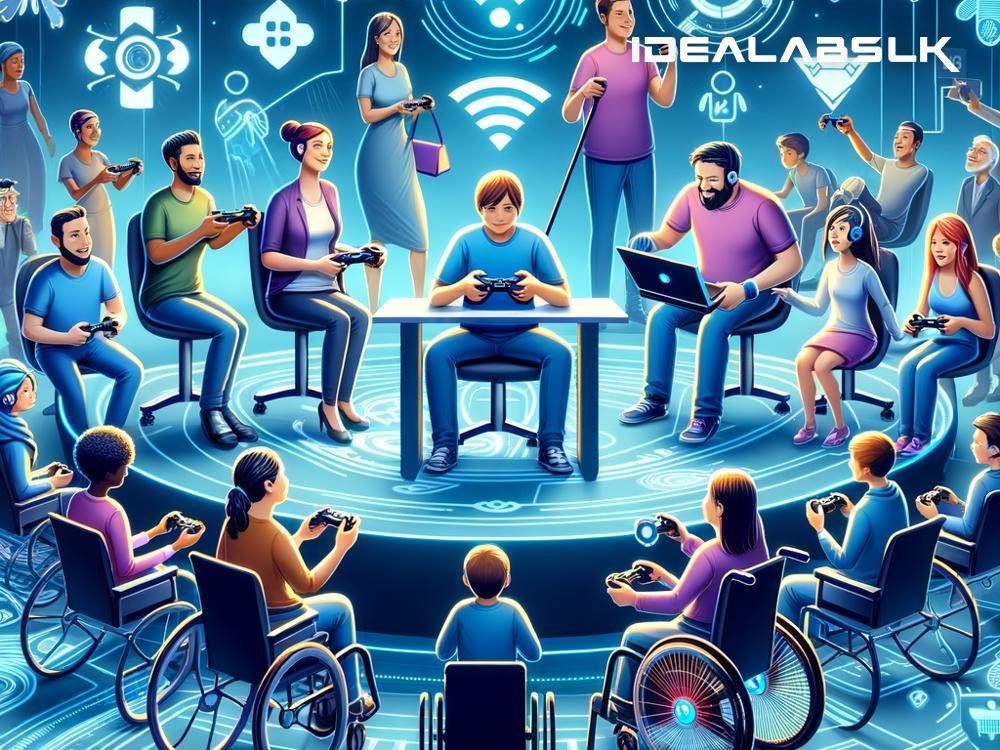How AI Will Improve Game Accessibility: Smarter Assistive Features in 2025
In the ever-evolving world of video games, developers are constantly seeking new ways to make games more immersive, engaging, and accessible to a broader audience. Accessibility in gaming refers to the design and development of games in a way that allows people with disabilities to have enjoyable gaming experiences. Artificial Intelligence (AI) is set to revolutionize this aspect of gaming by 2025, making games more accessible than ever before. Let's explore how smarter assistive features powered by AI will open up a whole new world of gaming for everyone.
Understanding the Role of AI in Games
AI is not a new concept in gaming. For years, it has been used to create intelligent behaviors in non-player characters (NPCs) and to enhance the realism of game environments. However, its potential to improve accessibility is a relatively untapped area with massive benefits. AI can learn and adapt to individual player needs, creating personalized gaming experiences that cater to a wide range of abilities and preferences.
Adaptive Difficulty Levels
One of the most exciting applications of AI in making games more accessible is through adaptive difficulty levels. Imagine a game that dynamically adjusts its difficulty based on the player's skill set and performance. For players with motor disabilities, the game could lower, the speed or complexity of challenges, providing a comfortable yet rewarding experience. AI can analyze a player's interactions in real-time, ensuring that the game remains challenging enough without being overwhelming.
Voice-Activated Controls
For gamers with limited mobility, voice-activated controls can be a game-changer. By 2025, AI-driven voice recognition systems will be much more advanced, capable of understanding and executing complex commands. This means that players could control game characters, navigate menus, and even create content within the game using just their voice, opening up new possibilities for interaction and creativity.
Visual and Auditory Modifications
AI will also play a crucial role in customizing game environments to better suit the needs of players with visual and auditory impairments. Through smart algorithms, games could automatically adjust colors, contrasts, and font sizes to enhance visibility for visually impaired players. For those with hearing impairments, AI could generate real-time subtitles for in-game dialogues and sound effects, ensuring that all players can fully immerse themselves in the story and action.
Cognitive Accessibility
Games that are cognitively accessible are crucial for players with intellectual disabilities or those who might find complex interfaces and gameplay difficult to navigate. By integrating AI, games could offer simplified menus, provide hints or automate certain tasks based on the player's preference and performance. This not only makes games more inclusive but also helps in reducing frustration and improving the overall gaming experience.
Personalized Learning and Support
AI can also assist in learning and support, adapting to each player's learning curve. For beginners or those facing difficulties, the game could offer tutorials, guidance, or even adjust the gameplay to ensure the player still enjoys the gaming experience. This personalized approach not only caters to individual learning speeds but also supports a wide range of abilities and knowledge levels.
The Future of Gaming
By making games more accessible, developers are not just opening up the world of gaming to a broader audience; they are also fostering a more inclusive community. The integration of AI into gaming to enhance accessibility is a testament to how technology can be used to break down barriers and create equal opportunities for enjoyment and entertainment.
Looking ahead to 2025, as AI technology continues to advance, we can expect even more innovative assistive features that will make gaming accessible to everyone, regardless of their physical or cognitive abilities. These smarter assistive features will not only enhance the gaming experience for people with disabilities but also offer new ways for all players to engage with video games.
In conclusion, the future of gaming looks promising, with AI leading the way in making games more accessible than ever before. By dynamically adjusting to individual needs, offering voice-activated controls, and providing visual, auditory, and cognitive support, AI is set to open up a whole new realm of possibilities in gaming. As we move towards 2025, it's exciting to imagine a world where everyone can enjoy gaming, thanks to the remarkable advancements in AI-driven assistive features.

